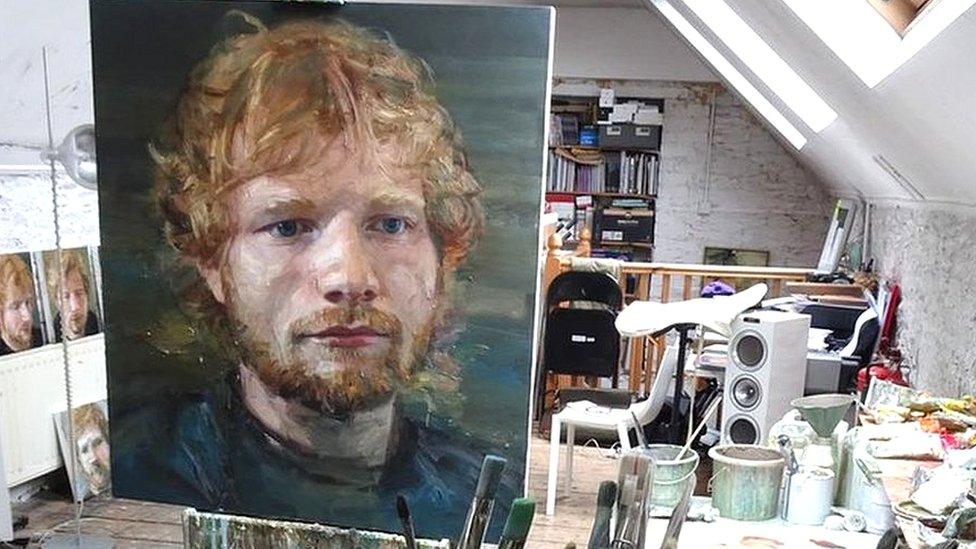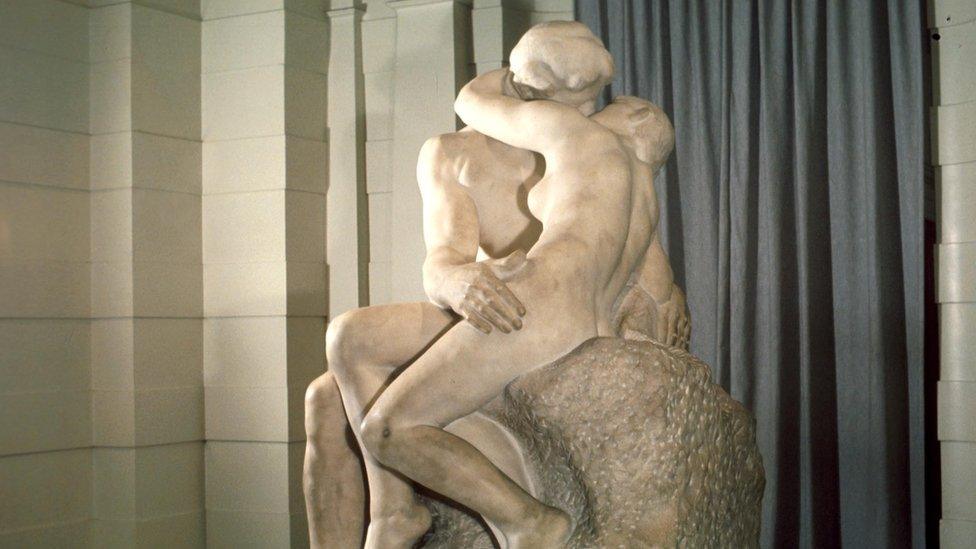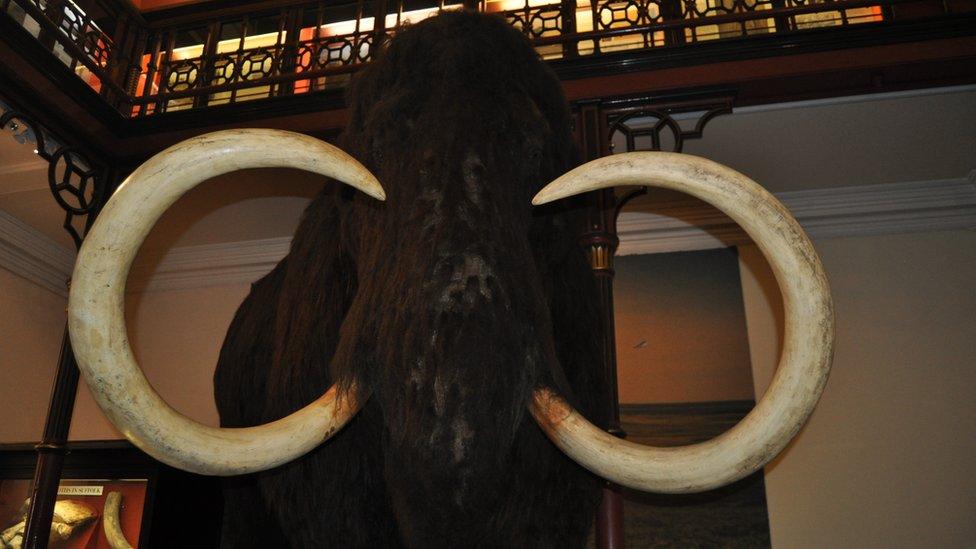Colchester and Ipswich museums to review 'problematic' displays
- Published

Ipswich Museum features animals, objects and clothing gathered from around the world
A plan to "decolonise" collections at a group of museums has been agreed in a bid to encourage greater diversity.
Ipswich Museum's collections are "problematic, with certain artefacts of questionable provenance", Colchester and Ipswich Museums Service, external admits.
Its newly approved plan promises new research and a re-examination of how it came by some of its artefacts.
The document also acknowledges its visitor profile does not "reflect that of the local, diverse demographic".
The moves comes as a wider national debate on the colonial era takes place, and follows the toppling of Bristol's statue of slave trader Edward Colston.
The strategy was approved by the joint museums committee of Ipswich and Colchester borough councils, according to the Local Democracy Reporting Service.
It also applies to Colchester Castle; Hollytrees Museum and the Natural History Museum, both in Colchester; Ipswich Art Gallery and Christchurch Mansion.

The museum contains collections covering both human and natural history
Frank Hargrave, Colchester and Ipswich Museums manager, said the strategy was about "better engagement and improving diversity".
"It's not about being unnecessarily provocative, it's about finding long term solutions and working with people to find solutions without being tokenistic or overly antagonistic," he said.
It was "not about taking stories away or hiding things," he added. Among some of the areas considered most problematic are holdings of human remains and religious artefacts, as well as those acquired by those with imperial agendas of their time such as colonial officers, expedition captains and missionaries.

Ipswich Museum opened in 1881
Ipswich Borough Council portfolio holder for museums, Carole Jones, said: "We have got a world collection and it is a really important one - it has something like 4,000 items in it and we don't know enough about it, really.
"This gives us the opportunity to look at it, explore it, to understand where our objects came from, how did we get them, from whom did we get them, where did they come from."

Find BBC News: East of England on Facebook, external, Instagram, external and Twitter, external. If you have a story suggestion email eastofenglandnews@bbc.co.uk, external
- Published14 January 2021

- Published24 June 2020

- Published14 June 2019

- Published24 December 2018
